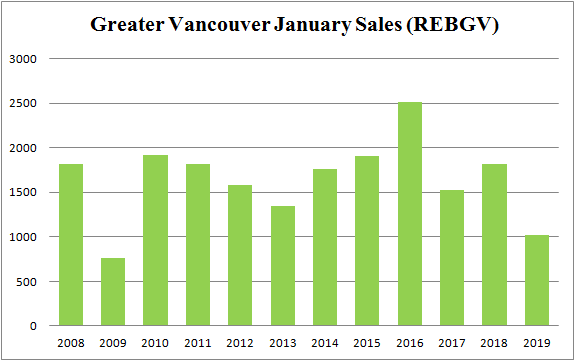February Month of Inventory (MOI) took a step under 8 months. Drop in MOI is typical of February as it is generally a seller's month. As the graph shows, MOI always drops in February. And MOI almost always drops again in March meaning we should see MOI remain in balanced market territory in March. The question is whether it will stay there for long past June.
> 8 months = Buyer's Market
5-8 months = Balanced Market
< 5 months = Seller's Market













